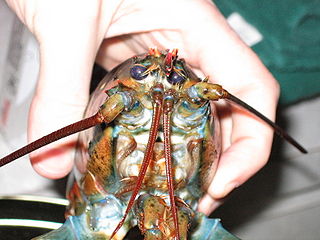Speciesism is a term used in philosophy regarding the treatment of individuals of different species. The term has several different definitions within the relevant literature. Some sources specifically define speciesism as discrimination or unjustified treatment based on an individual's species membership, while other sources define it as differential treatment without regard to whether the treatment is justified or not. Richard Ryder, who coined the term, defined it as "a prejudice or attitude of bias in favour of the interests of members of one's own species and against those of members of other species." Speciesism results in the belief that humans have the right to use non-human animals, which scholars say is pervasive in the modern society. Studies from 2015 and 2019 suggest that people who support animal exploitation also tend to endorse racist, sexist, and other prejudicial views, which furthers the beliefs in human supremacy and group dominance to justify systems of inequality and oppression.

Sentience is the simplest or most primitive form of cognition, consisting of a conscious awareness of stimuli without association or interpretation. The word was first coined by philosophers in the 1630s for the concept of an ability to feel, derived from Latin sentiens (feeling), to distinguish it from the ability to think (reason).

Christine Marion Korsgaard, is an American philosopher who is the Arthur Kingsley Porter Professor of Philosophy Emerita at Harvard University. Her main scholarly interests are in moral philosophy and its history; the relation of issues in moral philosophy to issues in metaphysics, the philosophy of mind, and the theory of personal identity; the theory of personal relationships; and in normativity in general.

Plant physiology is a subdiscipline of botany concerned with the functioning, or physiology, of plants.

Conversations regarding the ethics of eating meat are focused on whether or not it is moral to eat non-human animals. Ultimately, this is a debate that has been ongoing for millennia, and it remains one of the most prominent topics in food ethics. Individuals who promote meat consumption do so for a number of reasons, such as health, cultural traditions, religious beliefs, and scientific arguments that support the practice. Those who support meat consumption typically argue that making a meat-free diet mandatory would be wrong because it fails to consider the individual nutritional needs of humans at various stages of life, fails to account for biological differences between the sexes, ignores the reality of human evolution, ignores various cultural considerations, or because it would limit the adaptability of the human species.

Animal rights is the philosophy according to which many or all sentient animals have moral worth independent of their utility to humans, and that their most basic interests—such as avoiding suffering—should be afforded the same consideration as similar interests of human beings. Broadly speaking, and particularly in popular discourse, the term "animal rights" is often used synonymously with "animal protection" or "animal liberation". More narrowly, "animal rights" refers to the idea that many animals have fundamental rights to be treated with respect as individuals—rights to life, liberty, and freedom from torture that may not be overridden by considerations of aggregate welfare.
The argument from marginal cases is a philosophical argument within animal rights theory regarding the moral status of non-human animals. Its proponents hold that if human infants, senile people, the comatose, and cognitively disabled people have direct moral status, non-human animals must have a similar status, since there is no known morally relevant characteristic that those marginal-case humans have that animals lack. "Moral status" may refer to a right not to be killed or made to suffer, or to a general moral requirement to be treated in a certain way.

Plant perception or biocommunication is the paranormal idea that plants are sentient, that they feel pain, that they respond to humans in a manner that amounts to ESP, and that they experience a range of emotions or parapsychological states. Since plants lack nervous systems, paranormal claims regarding plant perception are considered pseudoscience by the scientific community.
The philosophical aspects of the abortion debate are logical arguments that can be made either in support of or in opposition to abortion.

Animal consciousness, or animal awareness, is the quality or state of self-awareness within an animal, or of being aware of an external object or something within itself. In humans, consciousness has been defined as: sentience, awareness, subjectivity, qualia, the ability to experience or to feel, wakefulness, having a sense of selfhood, and the executive control system of the mind. Despite the difficulty in definition, many philosophers believe there is a broadly shared underlying intuition about what consciousness is.
"Darwin among the Machines" is an article published in The Press newspaper on 13 June 1863 in Christchurch, New Zealand, which references the work of Charles Darwin in the title. Written by Samuel Butler but signed Cellarius, the article raised the possibility that machines were a kind of "mechanical life" undergoing constant evolution, and that eventually machines might supplant humans as the dominant species:
We refer to the question: What sort of creature man’s next successor in the supremacy of the earth is likely to be. We have often heard this debated; but it appears to us that we are ourselves creating our own successors; we are daily adding to the beauty and delicacy of their physical organisation; we are daily giving them greater power and supplying by all sorts of ingenious contrivances that self-regulating, self-acting power which will be to them what intellect has been to the human race. In the course of ages we shall find ourselves the inferior race.
...
Day by day, however, the machines are gaining ground upon us; day by day we are becoming more subservient to them; more men are daily bound down as slaves to tend them, more men are daily devoting the energies of their whole lives to the development of mechanical life. The upshot is simply a question of time, but that the time will come when the machines will hold the real supremacy over the world and its inhabitants is what no person of a truly philosophic mind can for a moment question.

The Case for Animal Rights is a 1983 book by the American philosopher Tom Regan, in which the author argues that at least some kinds of non-human animals have moral rights because they are the "subjects-of-a-life," and that these rights adhere to them whether or not they are recognized. The work is considered an important text within animal rights theory.

Fish fulfill several criteria proposed as indicating that non-human animals experience pain. These fulfilled criteria include a suitable nervous system and sensory receptors, opioid receptors and reduced responses to noxious stimuli when given analgesics and local anaesthetics, physiological changes to noxious stimuli, displaying protective motor reactions, exhibiting avoidance learning and making trade-offs between noxious stimulus avoidance and other motivational requirements.

Pain negatively affects the health and welfare of animals. "Pain" is defined by the International Association for the Study of Pain as "an unpleasant sensory and emotional experience associated with actual or potential tissue damage, or described in terms of such damage." Only the animal experiencing the pain can know the pain's quality and intensity, and the degree of suffering. It is harder, if even possible, for an observer to know whether an emotional experience has occurred, especially if the sufferer cannot communicate. Therefore, this concept is often excluded in definitions of pain in animals, such as that provided by Zimmerman: "an aversive sensory experience caused by actual or potential injury that elicits protective motor and vegetative reactions, results in learned avoidance and may modify species-specific behaviour, including social behaviour." Nonhuman animals cannot report their feelings to language-using humans in the same manner as human communication, but observation of their behaviour provides a reasonable indication as to the extent of their pain. Just as with doctors and medics who sometimes share no common language with their patients, the indicators of pain can still be understood.

There is a scientific debate which questions whether crustaceans experience pain. It is a complex mental state, with a distinct perceptual quality but also associated with suffering, which is an emotional state. Because of this complexity, the presence of pain in an animal, or another human for that matter, cannot be determined unambiguously using observational methods, but the conclusion that animals experience pain is often inferred on the basis of likely presence of phenomenal consciousness which is deduced from comparative brain physiology as well as physical and behavioural reactions.
Sentiocentrism, sentio-centrism, or sentientism is an ethical view that places sentient individuals at the center of moral concern. Both humans and other sentient individuals have rights and/or interests that must be considered.

Pain is an aversive sensation and feeling associated with actual, or potential, tissue damage. It is widely accepted by a broad spectrum of scientists and philosophers that non-human animals can perceive pain, including pain in amphibians.

Pain in cephalopods is a contentious issue. Pain is a complex mental state, with a distinct perceptual quality but also associated with suffering, which is an emotional state. Because of this complexity, the presence of pain in non-human animals, or another human for that matter, cannot be determined unambiguously using observational methods, but the conclusion that animals experience pain is often inferred on the basis of likely presence of phenomenal consciousness which is deduced from comparative brain physiology as well as physical and behavioural reactions.

The ethics of uncertain sentience refers to questions surrounding the treatment of and moral obligations towards individuals whose sentience—the capacity to subjectively sense and feel—and resulting ability to experience pain is uncertain; the topic has been particularly discussed within the field of animal ethics, with the precautionary principle frequently invoked in response.

Insects and human ethical obligations towards them have been discussed by a number of writers and figures throughout history, many of whom, arguing from a variety of different perspectives, have contended that there exists a moral obligation towards not harming or killing insects. According to generally accepted definitions in animal welfare and agricultural ethics, however, it is argued that individual insects do not have a "right to life".
















